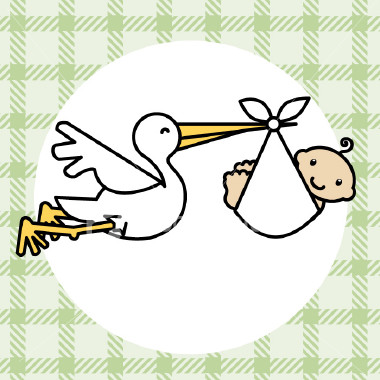FreelanceWriter
Detroit, MI
Female, 30
After working in strategic communications and marketing for five years after college, I decided to make the move to full-time freelancing--mostly, to give me the freedom to travel. I've been freelancing for three years. At any given time, I'm writing for 5-10 print and digital publications, covering everything from engineering to travel. Common projects include copy writing, research reporting and academic writing.
I wondered how long it would take someone to ask me that! I get an email or a Facebook message asking the same question about once a week. :) My definition of "comfortable" is being able to buy and do pretty much what I want (within reason) without worrying about it or living paycheck to paycheck. When you average out the low-income months (traveling in developing countries and working 2 hours per day) and higher-income months (traveling/living in the US or Europe and working a max of 5 hours per day), it comes to about $40,000 a year. Obviously, that salary comes with some limitations. If I want to work 4-5 hours a day, I'm not going to be living in Paris or New York. But I have a completely flexible schedule. I never have to set foot in an office. I can travel 100% of the time. I can work from home, a coffee shop or a library. I never work before 10:30 am. I can fly off to visit friends or family even if I'm in the middle of a big project. I've worked from 42 countries around the world. That's worth so much more to me than making $80,000 sitting in an office for 40-50 hours a week and fitting all of my fun into three weeks of vacation. This is my dream life. :) One thing that's important to note: I try to keep payments to a minimum. I own my car and I don't keep an apartment when I'm out of the country for more than two months at a time. I don't buy anything I can't pay for in cash. If a month comes along where I lose all of my clients--I've heard of this happening--there won't be a million payments to worry about. With a mortgage and a car loan and huge car insurance payments and credit card debt and a summer house, it would be a different story. Writing is an absolutely viable career as long as you write well and you can plan ahead...and as long as you're not planning to be a poet. I've never met a full-time poet. :)
I'm fortunate enough to have great clients who respect my work and recognize when I'm the authority. If they make changes, it's usually to refine the technical or scientific content. (I do a lot of writing about highly complex technologies and research projects.) I love that type of editing because I can learn from it. Plus, if I have clients who are truly irritating, I can dump them. :) When I worked for a communications agency, it was different. My job was to put out great writing AND pacify clients to maintain the company's relationships. Academics are the worst. I sent a technical piece to one interview subject (an engineering researcher) for fact-checking, and he sent it back with 500 extra words added--500! On a 1200-word piece! Not only that, but all of those extra words were spent boasting about himself. Fortunately, he wasn't the client--so I took the extra text out and approved it for publication. I will say that it took some time for me to create a distance between me and my writing. As a professional writer, you MUST learn to separate yourself from each piece and look at criticism objectively. You can't take it personally, because it's not intended that way. Clients aren't trying to hurt your feelings--they just want to get the best possible piece, even if they go about it the wrong way. It takes time to learn how to gently inform a client that they are wrong and persuade them to let you do things your way. One more thing. I do a lot of ghostwriting, which means that my byline is not attached to the piece. Universities and corporations often request this type of work so they can retain all of the rights. I have one such client that sends my text on to his company's in-house marketing department to ensure style guide compliance. The marketing folks, who are irritated that the executives outsource the writing, butcher each and every piece. They change meanings, alter sentences, and weaken each document. After much consideration, I've decided that I don't care. The job pays really well and ensures steady work, which is a big thing for a freelancer. Plus, my name isn't connected to the crappy work and I really enjoy doing it--I just make sure not to read the published pieces.
I ran into a seriously slow period just once--the fear was enough to motivate me to change the way I work. I was working with only two clients at that point, and one of them lost their government funding. Luckily, I had another project coming right down the pipeline, but it was terrifying to realize that I could lose half of my income in an instant. Now, I've added more clients, so I have a very steady supply of work. I also put in place a few backups that I can turn to if things go south. One of them, which I hope I never need to use, is content mill work--Demand Studios and CloudCrowd. Both sites have a large supply of work, pay out frequently (and reliably), and don't have a minimum writing requirement. As a result, I can let my accounts sit for years on end and use them only if I need to. Content mills are a sensitive topic among writers. They're not really a viable source of full-time work, because you'd have to write forever to make a reasonable salary. The editorial standards are often VERY low. The pay is also low--ridiculously so, in many cases--one site I saw offered $2 for 500 words! While it is possible to make money on content mills, I'd advise that you do NOT attach your real name to your account to protect the integrity of your personal brand.
I'm certainly not a fashion industry expert, but I'm guessing it varies by publication. Obviously, Vogue.com is going to have different standards than SHEfinds.com. If you're aiming for a website that has exceptionally high readership or is connected with a respected national publication, the blog probably won't be enough. You'd probably also need some type of published sample to show that you understand journalistic writing and that you can work within the professional writing environment. If you are looking to write for a website that has a more informal tone, is not connected with a print publication or has a small readership, the blog might be plenty. In either case, here's what I suggest: go through every post in your blog and ensure that there isn't a single typo. Not one. Make sure that each post communicates your unique voice. That's the most powerful thing about a blog, especially in a subjective area like fashion--it gives you the unparalleled opportunity to express your personality and point of view. For many bloggers who transition to journalism, that's what sells. (Check out thedaybookblog.com for an example. The blogger also writes a fashion column.) Why go through every post? If I were an editor and I was considering you as a potential writer, I would scroll through a few current posts and then I'd randomly click on posts from years past to see how your style has evolved. Don't assume that no one will bother to look at your first post! Most sites that accept freelancers publish submission guidelines. They're also called writer's guidelines, writers guidelines (yes, they appear both ways), publication guidelines, editorial guidelines and every other possible variation on the theme. Usually, you can find them at pages entitled About Us, Jobs, Careers, Writers, Contact, etc. Read them carefully. If they ask specifically for published print clips, you probably won't have much luck sending a blog. (Though you can certainly try.) If they simply ask for samples or clips, query away.
Subway Store Manager
 Does Subway have a secret menu?
Does Subway have a secret menu?
Bouncer
 What's the best way to "get in good" with the bouncer at the door?
What's the best way to "get in good" with the bouncer at the door?
Obstetrician Gynecologist
 Has being an OBGYN affected your own beliefs about when "life" begins?
Has being an OBGYN affected your own beliefs about when "life" begins?
The short answer: I don't work for free and I never have. When it comes to compensation, I have complete control. As a freelancer, I can negotiate my rate and turn down low-paying jobs. If I am not being compensated fairly, the blame lies entirely with me. Many freelancers fall into the trap of writing for a pittance, just to get by or just to build a portfolio. The truth is, an employer that doesn't value a writer's work is not worth your time. There are plenty of companies and organizations that are willing to pay reasonable rates--you just have to put in the work to find them. Many writers make the mistake of quitting their jobs to go freelance before they have established clients or built up a savings. Bad idea! Before I quit my full-time job, I found several clients who would provide a steady stream of work. Now, the (seriously) long answer: This is a big, hotly debated issue for new writers: should you write for free to build a portfolio? The answer is different for every writer. I came out of college with a number of writing samples, which I used during the job-hunting process. One of my first jobs included a LOT of writing. Research reports, magazine articles, technical pieces, training seminar content, Web copy, marketing copy, academic journal articles, grant proposals...you name it, I wrote it. When I moved into freelancing, I had a solid portfolio and a slew of industry relationships. I had firsthand experience with the professional writing process--the time commitment, the rounds of editing, the client communication and the necessary background research. I knew how to write for different audiences. Most importantly, I understood that strong writing is of great value to clients. It helps them build a reputation, land new accounts, communicate with clients and increase profits. With that knowledge, there was no way I was going to write for free! As an aspiring writer, you must believe that your time is valuable. If you don't value your time, how can you expect anyone else to? If you have no writing samples, or if you are switching to a writing area in which you have no experience, the answer might be different. In that case, I would advise that a new writer do no more than three pieces for free. Why? Most employers won't ask for more than three writing samples. I'll go a step further and suggest that you only write these three free pieces under two circumstances: 1. The client is doing something you believe in and operating with a limited (or nonexistent) budget. Start with the organizations you love: humane societies, community theatre groups or environmental groups, for example. Most organizations have some type of writing need, which is usually filled by a non-writer. In offering to write for free, you get a portfolio piece and you get to help a cause you care about. Plus, when you're passionate about something, the writing process is almost always easier and more enjoyable. 2. You get something in return. Don't be afraid to barter! Find someone that needs writing skills but can't afford to pay a writer and negotiate an exchange. Offer to write web copy for a photographer in exchange for a photo session, for example, or write brochure copy for a masseuse in exchange for a massage. You'll find the most success with small businesses or individual service providers.
I've always been a fairly competent writer, mostly because I've always been a voracious reader. Reading is a big part of writing well--it introduces you to sentence structure, helps you recognize misspellings and grammatical errors. It also teaches you how to break the rules, which is more important than you might think. In answer to your question, yes, I was told that I was a good writer in elementary school, high school and college. Of course, the definition of "good" writing changes rapidly as you move beyond essays and term papers. In college, I learned that I am a terrible creative writer. I like to infuse creativity into non-fiction and technical writing, but when it comes to poetry or short stories, I'm hopeless. The moral of the story is that if you fail at one type of writing--or if you've never been told that you're a good writer--don't give up!
For print work, no. For digital pieces...it depends. In most cases, when you cover a topic thoroughly, it will be naturally optimized. You'll automatically use the key phrases in many different places and in many different forms. That, and search engines penalize website for text that is over-optimized. In fact, one of my clients expressly requests that I do not worry about SEO. He'd rather provide his Web visitors with informative text than achieve high search engine placement. Now, if I'm doing text that is designated for SEO landing pages, it's a different story. In that case, my definition of "quality" changes. Rather than judge the text on how beautiful it is or how well the sentences flow, I measure it against the client's goals. Do the keywords appear the correct number of time to meet the target frequency? Do they appear in titles, subtitles, lead sentences and in different forms? I always aim to write text that is readable and error free, but sometimes it's necessary to sacrifice lovely prose to achieve the project goal.
-OR-
 Login with Facebook
Login with Facebook (max 20 characters - letters, numbers, and underscores only. Note that your username is private, and you have the option to choose an alias when asking questions or hosting a Q&A.)
(A valid e-mail address is required. Your e-mail will not be shared with anyone.)
(min 5 characters)
By checking this box, you acknowledge that you have read and agree to Jobstr.com’s Terms and Privacy Policy.
-OR-
 Register with Facebook
Register with Facebook(Don't worry: you'll be able to choose an alias when asking questions or hosting a Q&A.)